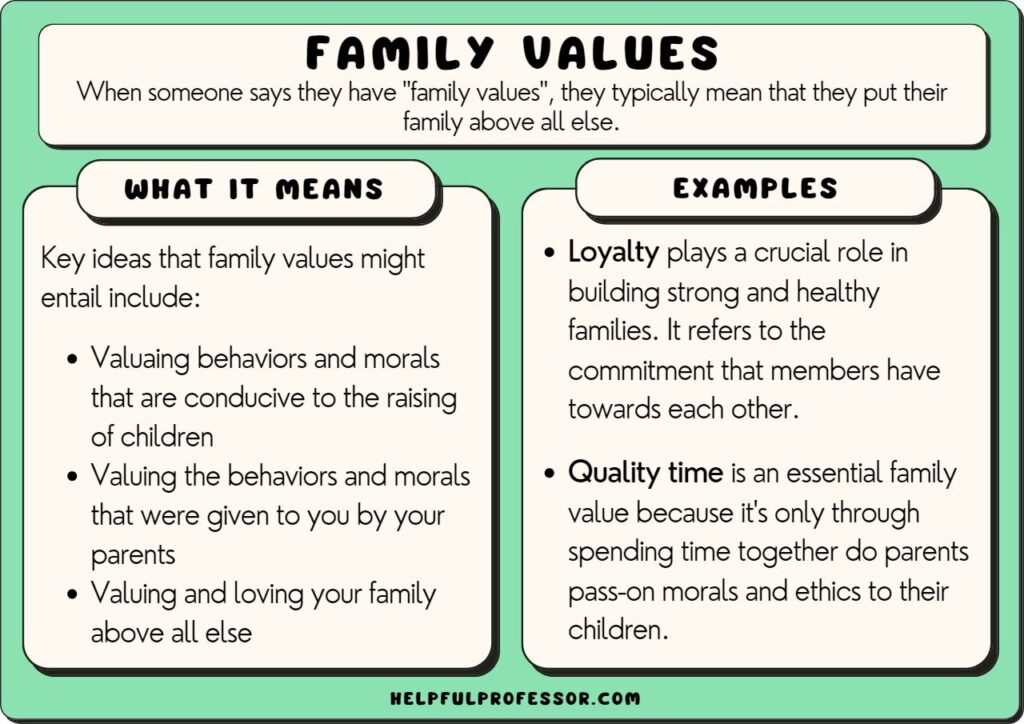A positive family culture is the foundation upon which strong, healthy, and happy relationships are built. It is the values, beliefs, and traditions that shape our interactions, behaviors, and attitudes within the family unit. A positive family culture fosters a sense of belonging, love, and respect among family members, creating an environment where individuals can grow, learn, and thrive. In this article, we will explore the importance of creating a positive family culture, its benefits, and practical tips on how to cultivate it.

Why is a Positive Family Culture Important?
A positive family culture has a profound impact on the well-being and development of family members, particularly children. Research has shown that children who grow up in families with a positive culture are more likely to:
- Develop emotional intelligence and resilience
- Build stronger relationships with their parents and siblings
- Perform better academically and socially
- Have better mental health and overall well-being
- Adopt healthy habits and values
- Develop a stronger sense of identity and self-esteem
On the other hand, a negative family culture can lead to conflict, stress, and anxiety, which can have long-term effects on family members’ mental and emotional health.
Benefits of a Positive Family Culture
A positive family culture brings numerous benefits to family members, including:
- Increased empathy and understanding
- Improved communication and conflict resolution skills
- Stronger bonds and relationships
- A sense of belonging and connection
- Increased resilience and coping skills
- Better emotional regulation and management
- A positive influence on children’s development and behavior
Practical Tips for Creating a Positive Family Culture
- Lead by Example: As a parent, you are your child’s most significant role model. Demonstrate the values and behaviors you want your child to adopt, such as kindness, empathy, and respect.
- Practice Open Communication: Encourage open and honest communication within the family. Listen actively, validate feelings, and provide guidance without being judgmental.
- Foster a Sense of Belonging: Create opportunities for family bonding, such as regular family meals, game nights, or outdoor activities.
- Establish Traditions: Develop traditions that promote a sense of connection and belonging, such as annual family vacations, holiday celebrations, or weekly family dinners.
- Show Appreciation and Gratitude: Express gratitude and appreciation for family members, acknowledging their efforts and contributions.
- Emphasize Personal Responsibility: Encourage family members to take responsibility for their actions, apologizing and making amends when necessary.
- Practice Emotional Intelligence: Teach family members to recognize, understand, and manage their emotions, developing emotional intelligence and empathy.
- Cultivate Forgiveness and Understanding: Foster a culture of forgiveness, understanding, and second chances, promoting healthy conflict resolution and emotional regulation.
- Encourage Positive Feedback: Focus on positive reinforcement, providing constructive feedback and acknowledgement of achievements and efforts.
- Make Time for Family Activities: Prioritize family time, engaging in activities that promote bonding, learning, and fun.
Challenges of Creating a Positive Family Culture
While creating a positive family culture is crucial, it can be challenging, especially in today’s fast-paced and often stressful world. Some common challenges include:
- Busy schedules and conflicting priorities
- Parental stress and burnout
- Generational differences and conflicts
- External influences, such as social media and peer pressure
FAQs
Q: How can I create a positive family culture when I’m not a perfect parent?
A: Perfection is not the goal. The key is to be intentional, consistent, and patient. Apologize when you make mistakes and model the values and behaviors you want your children to adopt.
Q: What if my partner and I have conflicting parenting styles?
A: Communicate openly and honestly with your partner, finding common ground and compromising where necessary. Present a united front to your children, demonstrating respect and understanding for each other’s perspectives.
Q: How can I involve my children in creating a positive family culture?
A: Encourage children to contribute to decision-making, participate in family activities, and provide input on family traditions and values. This empowers them and fosters a sense of ownership and responsibility.
Q: What if I’m a single parent or have a blended family?
A: A positive family culture is possible in any family structure. Focus on building strong relationships, setting clear boundaries, and promoting open communication. Seek support from extended family, friends, or support groups when needed.
Conclusion
Creating a positive family culture is a journey that requires intentionality, effort, and patience. By prioritizing values such as empathy, respect, and kindness, and practicing consistent and positive communication, you can foster a nurturing environment where family members can thrive. Remember that it’s okay to make mistakes and that imperfections are an opportunity for growth and learning. By following the practical tips outlined in this article and addressing common challenges, you can create a positive family culture that will have a lasting impact on your family’s well-being and relationships.
Closure
Thus, we hope this article has provided valuable insights into Creating a Positive Family Culture: A Guide to Nurturing Lasting Relationships and Values. We hope you find this article informative and beneficial. See you in our next article!